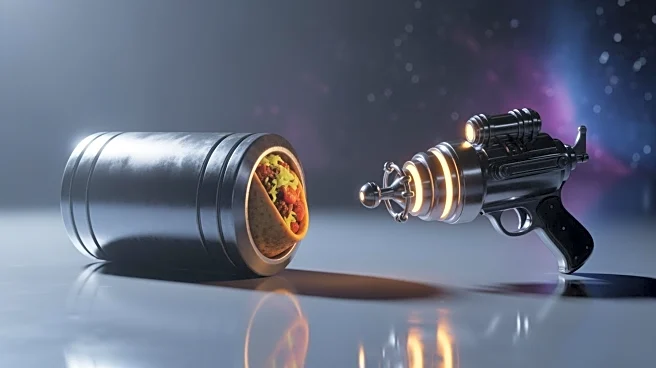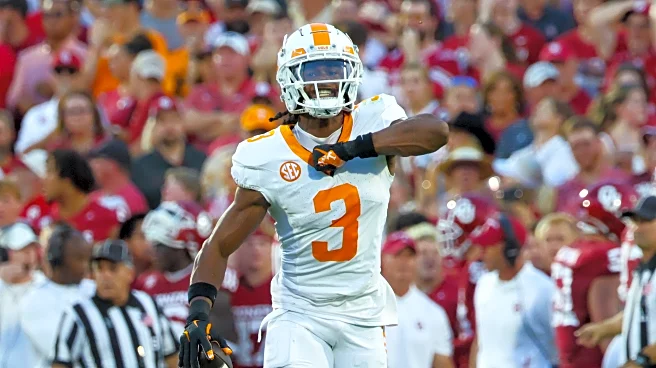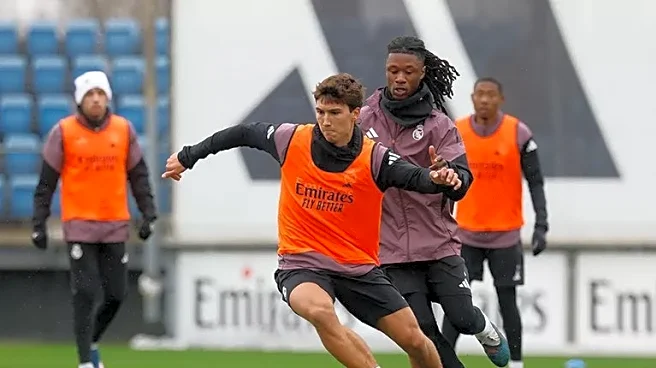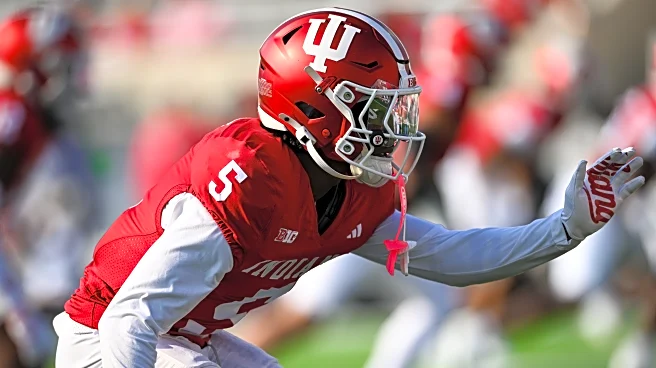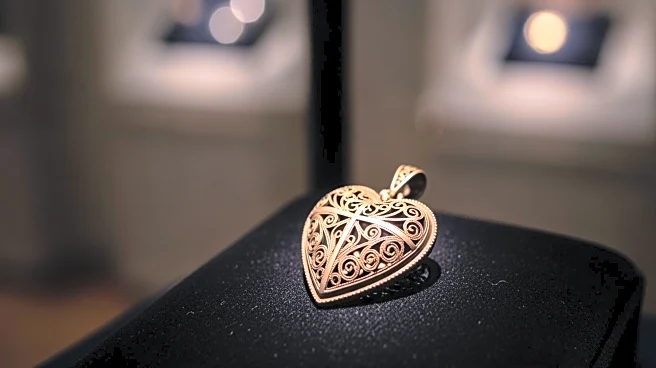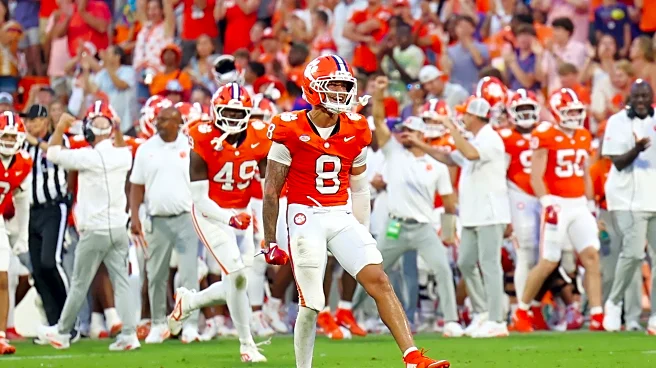What's Happening?
James Gunn, co-chief of DC Studios and showrunner for 'Peacemaker,' made an offhand remark during an interview on October 10, 2025, suggesting a potential crossover with Marvel's Deadpool. This comment,
made after the Season 2 finale of 'Peacemaker,' has ignited widespread speculation and debate among fans and industry insiders. The finale, which introduced new plot elements like Salvation and Checkmate, already had fans on edge, and Gunn's comment has further fueled expectations of a Marvel-DC crossover. The remark has been amplified across social media and various platforms, with fans and critics alike debating its implications for future franchise collaborations.
Why It's Important?
The significance of Gunn's comment lies in its potential to reshape fan expectations and influence studio strategies. A crossover between Marvel and DC would be unprecedented, potentially altering the landscape of superhero franchises. Studios must now navigate the heightened expectations and manage the legal and creative challenges such a crossover would entail. The remark has also highlighted the power of social media in amplifying offhand comments into major industry discussions. For fans, the possibility of a crossover represents a dream scenario, while for studios, it presents both an opportunity for increased engagement and a challenge in terms of rights management and narrative coherence.
What's Next?
In response to the speculation, studios may need to issue clarifications or statements to manage fan expectations. They will likely assess the impact of the remark on brand perception and consider whether to pursue crossover opportunities. The reaction from fans and the media will be closely monitored to gauge the potential benefits and drawbacks of such a collaboration. Meanwhile, creators and showrunners will be more cautious about making similar remarks in the future, understanding the potential for their words to influence public perception and industry dynamics.
Beyond the Headlines
This incident underscores the evolving relationship between creators, fans, and media in the digital age. The rapid spread of Gunn's comment illustrates how quickly narratives can shift and how creators must navigate the fine line between teasing future projects and inadvertently setting unrealistic expectations. The situation also highlights the growing importance of strategic communication in maintaining control over franchise narratives and the potential for offhand remarks to become pivotal moments in entertainment discourse.
